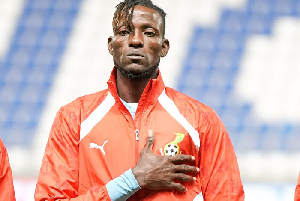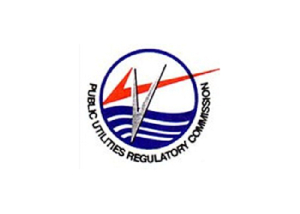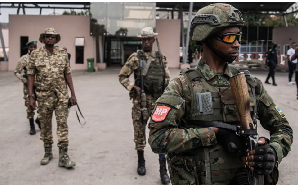By Dr. Michael J.K. Bokor
Monday, June 29, 2015
Folks, the Okyenhene (Osagyefo Amoatia Ofori Panin) is reported to have derided the government for “flaunting” road construction as a major accomplishment to boast of “because it is part of its basic responsibilities.”
According to him, the government has not done anyone a favour by constructing those roads. “You have not done anyone a favour by constructing roads. As a government, your duty is to construct roads. It is part of government’s duty to build infrastructure and offer the citizenry better living standards,” he noted. (See http://www.ghanaweb.com/GhanaHomePage/NewsArchive/Constructing-roads-is-no-achievement-Okyehene-to-gov-t-365311)
The Okyenhene has touched raw nerves, and must be told that his comment is misplaced and unjustifiably harsh for narrow political purposes. What is disturbing about his comment is that it has come at a time that the Mahama-led administration has begun constructing roads in the Okyenhene’s domain to boost economic activities (especially in the cocoa-growing parts). The government has extended such initiatives to other parts of the country.
It is not doing so as a “favour” but as a responsibility it owes to the citizens whose blood, sweat, and toil feed the national coffers. The government isn’t boasting of such road projects because it is a favour being done the people but because it demonstrates its commitment toward uplifting standards. Had previous governments taken up such projects, the country’s road network would have improved long ago to boost mobility and economic activities.
I don’t see anything wrong with the government’s use of such initiatives to do political mobilization. After all, the mere fact that road construction is one of every government’s “basic responsibilities” doesn’t mean that all previous governments lived up to that expectation. The problem in Ghana is not about the initiation of projects but that of maintenance; but there is nothing wrong with flaunting road construction as a major accomplishment. The Okyenhene goofed big time.
Who doesn’t know that the government has “basic responsibilities” and that not all governments perform such “basic functions”? It is obvious that a husband shouldn’t be praised for impregnating his wife because doing so is his “primary responsibility”; but how many husbands haven’t failed to impregnate their wives and suffered the negative backlash as such? So, a successful one should feel proud and be supported, not derided.
Within this context, if the government succeeds in constructing roads that its predecessors did not, shouldn’t it be praised or shouldn’t it have the bragging rights? It deserves every right to brag, more so when the beneficiaries enjoy the facilities and praise it for giving them part of the national cake.
Why did the Okyenhene isolate roads from the numerous development projects undertaken by the government? More importantly, has he ever done anything to improve living conditions of his own people; and how has he felt thereafter? Just as the government depends on revenue from sources such as taxes paid by the citizens, so do the chiefs also draw revenue from selling property (especially land) in their domains. What do they use that revenue for to benefit the people?
I challenge his claim that “When government refuses to construct these roads and others subsequently decide to do it, the only thing government says is ‘thank you.” Where is the evidence?
Just to revisit this area concerning the “loan” given the Asantehene by the World Bank for development projects in Asanteman during the Kufuor era. We were told at the time that the people needed facilities that the money could provide. Should the Asantehene not feel proud at the completion of those projects and point to them as evidence of his good administration of affairs—something that none of his predecessors could do? And who can deride him if he does so?
Invariably, the Okyenhene’s derisive comment reflects much to concern us. By that comment alone, he has exposed several issues regarding development projects, generally, which we must analyze properly to know what is at stake. Comments of the sort come across as politically motivated and must be understood as such. After all, in our time when development projects have become sources from which politicians draw political capital, any attempt to undermine those initiating such projects can’t be overlooked.
We note with much trepidation that such comments are misplaced and irrelevant; or, to put it bluntly, they expose their makers’ mischief. And that’s exactly what I want to tell the Okyenhene. I wonder if he thought through that opinion properly before uttering it the way he did. If he didn’t, then, I pity him; but if he did, then, he must have made it to sting the government in the hope that it will advance its opponents’ political cause. In that sense, then, he is doing negative politics that won’t serve any useful purpose as intended and enacted.
I want to ask the Okyenhene whether he has felt comfortable in his Abuakwa area, faced with privations regarding potable water, good and motorable roads, electricity, recreational facilities, schools, and many more. I want to ask him if he has been listening to the complaints of his own people about the inability of their MPs to solve such challenges and how he feels about such complaints.
Above all, I want to know from the Okyenhene how he feels after the Mahama-led administration had completed the water project for his traditional area and whether he appreciates anything done by the government to “develop” that area. If he tells me that he appreciates the development projects being undertaken in front of his eyes, I will clap for him. Otherwise, I will dismiss him as an ingrate.
Folks, it is good for us to observe here that a government that uses the tax payers’ money to solve pertinent problems such as constructing good roads to open up the system deserves more than praise. Such roads enhance the communication network and encourage mobility to allow the citizens do business productively. That is why governments all over the world consider road networks as a priority area to tackle. I don’t see anything wrong with how our governments over the years have sought to approach national development through road projects. If the Okyenhene sees things differently, he can hide in the cocoon of ingratitude and stew in his own foolery. We won’t.
Where has he been not to know that one of the major obstacles faced by the long-serving former MP for Abuakwa (Akufo-Addo, leading the NPP to Election 2016) to win overwhelming support from the area is his inability to bring development projects to that area. It is all over the place. So, if the government has succeeded in braving all odds to undertake road projects in that area to boost economic activities, shouldn’t it praise itself because the Okyenhene and Co. will not praise it? The lizard has fallen from the tall iroko tree, nodding its head in self-congratulation because the Okyenhenes seeing the spectacle won’t praise it. Hoooooooooooooooooo!!
Was this same Okyenhene (then President of the Eastern Regional House of Chiefs) not reported to lead a “protest march” of a retinue of chiefs and Members of Parliament on Monday, July 15, 2014, to inspect roads in the region, most of which were in very deplorable state?
Indeed, by this singular derision, the Okyenhene has given me cause to suspect him of doing rogue politics. Considering the recent problems over the galamsey operations in his area and President Mahama’s comments that were misconstrued to mean an attack on him and his Akyem people, one can only draw inferences from his comment to suggest that he has more up his sleeves. And we will watch him closely.
I shall return…
• E-mail: mjbokor@yahoo.com
• Join me on Facebook at: http://www.facebook.com/mjkbokor to continue the conversation
Opinions of Tuesday, 30 June 2015
Columnist: Bokor, Michael J. K.














